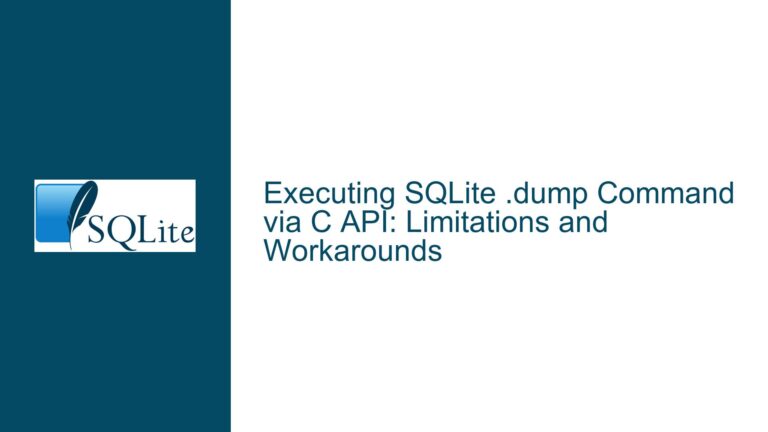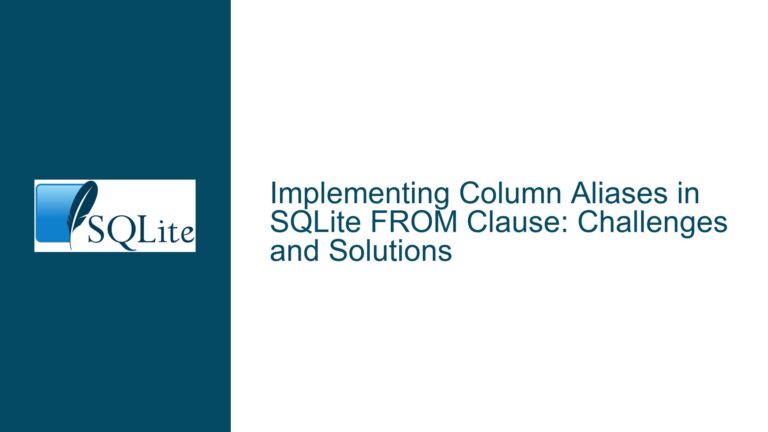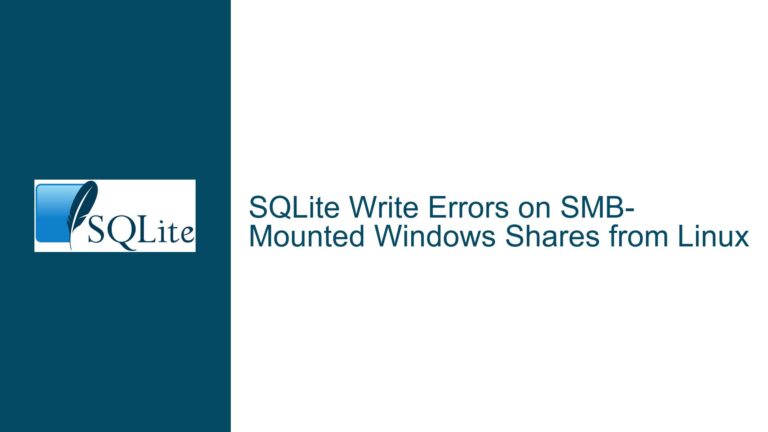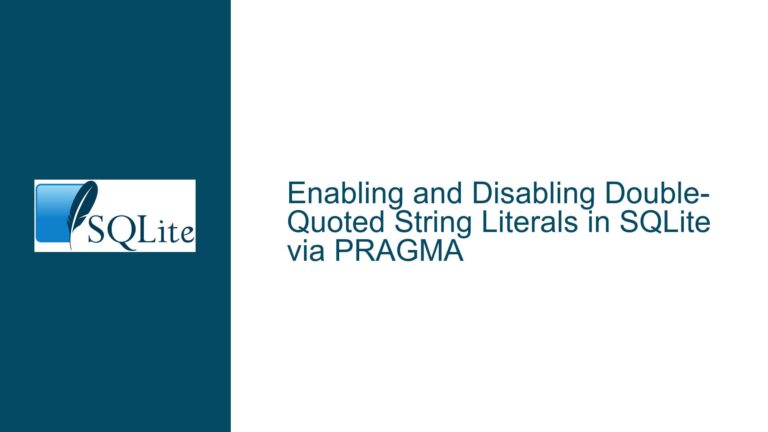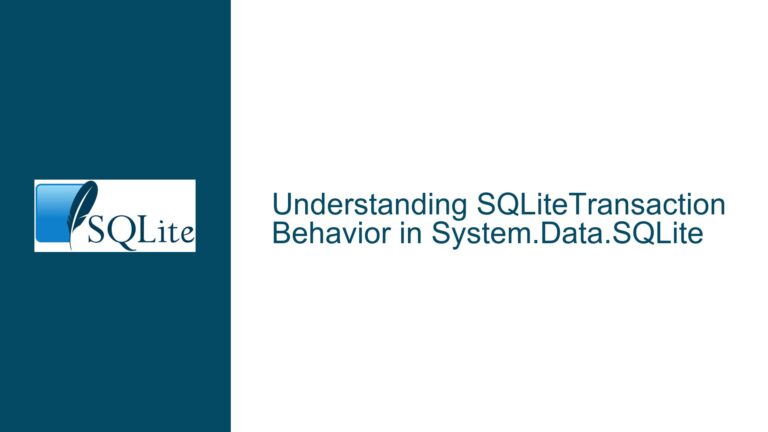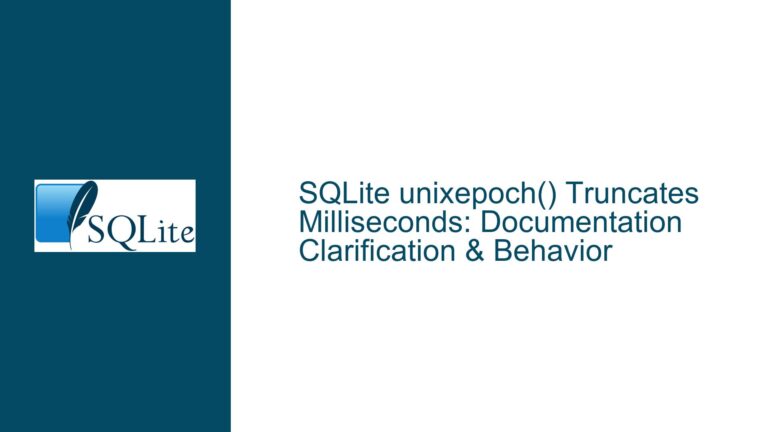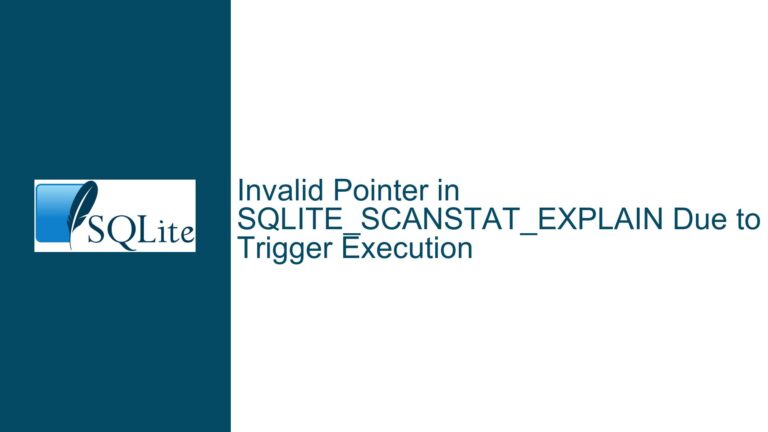Optimizing FTS5 External Content Tables and Vacuum Interactions
FTS5 OPTIMIZE Command Efficacy with External Content Tables and Vacuum Relevance FTS5 Index Optimization Mechanics and Vacuum Behavior The core issue revolves around two distinct operations in SQLite: the OPTIMIZE command for FTS5 virtual tables configured with external content tables and the VACUUM command. These operations are often conflated due to overlapping objectives in database…

